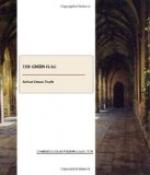“Ah! monsieur, you can imagine the horrible uncertainty in which we spent the day. Never, never shall I forget those slow hours during which we sat together, starting at every distant shout, lest it should be the first sign of the rejoicing which this news would cause in London. Monsieur Otto passed from youth to age in a day. As for me, I find it easier to go out and meet danger than to wait for it. I set forth, therefore, towards evening. I wandered here, and wandered there. I was in the fencing-rooms of Monsieur Angelo, and in the salon-de-boxe of Monsieur Jackson, and in the club of Brooks, and in the lobby of the Chamber of Deputies, but nowhere did I hear any news. Still, it was possible that Milord Hawkesbury had received it himself just as we had. He lived in Harley Street, and there it was that the treaty was to be finally signed that night at eight. I entreated Monsieur Otto to drink two glasses of Burgundy before he went, for I feared lest his haggard face and trembling, hands should rouse suspicion in the English minister.
“Well, we went round together in one of the Embassy’s carriages about half-past seven. Monsieur Otto went in alone; but presently, on excuse of getting his portfolio, he came out again, with his cheeks flushed with joy, to tell me that all was well.
“‘He knows nothing,’ he whispered. ’Ah, if the next half-hour were over!’
“‘Give me a sign when it is settled,’ said I.
“‘For what reason?’
“’Because until then no messenger shall interrupt you. I give you my promise—I, Alphonse Lacour.’
“He clasped my hand in both of his.
“’I shall make an excuse to move one of the candles on to the table in the window,’ said he, and hurried into the house, whilst I was left waiting beside the carriage.
“Well, if we could but secure ourselves from interruption for a single half-hour the day would be our own. I had hardly begun to form my plans when I saw the lights of a carriage coming swiftly from the direction of Oxford Street. Ah! if it should be the messenger! What could I do? I was prepared to kill him—yes, even to kill him—rather than at this last moment allow our work to be undone. Thousands die to make a glorious war. Why should not one die to make a glorious peace? What though they hurried me to the scaffold? I should have sacrificed myself for my country. I had a little curved Turkish knife strapped to my waist. My hand was on the hilt of it when the carriage which had alarmed me so rattled safely past me.
“But another might come. I must be prepared. Above all, I must not compromise the Embassy. I ordered our carriage to move on, and I engaged what you call a hackney coach. Then I spoke to the driver, and gave him a guinea. He understood that it was a special service.
“‘You shall have another guinea if you do what you are told,’ said I.
“‘All right, master,’ said he, turning his slow eyes upon me without a trace of excitement or curiosity.




